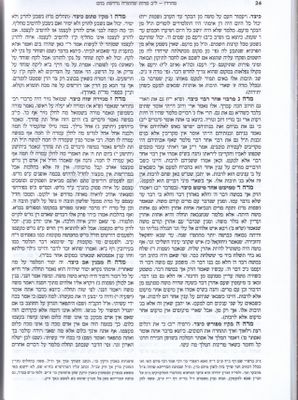
m2
min to exclude, howso?
Shemot 18:13:
Is it possible the entire day? When do the disciples learn? Therefore it comes to teach "from the morning" as an exclusion, which teaches that he did not sit there the entire day. And the chachamim gave an estimate of until 6 hours.
Discussion/Clarification: Not that this is how long Moshe judged, because otherwise what is meant by "until evening. Rather, this is a reference to Shabbat 10a {Rif Shabbat 4a}:
Rav Chisda and Rabba bar Rav Huna were sitting all day engaged in judgements, and their hearts grew faint. {Rashi: since they were not able to learn Torah. Alternatively, they grew faint because they had not opportunity to eat all day.} Rav Chiyya bar Rav, of Difti, taught {tnei} (Shmot 18:13:)
יג וַיְהִי, מִמָּחֳרָת, וַיֵּשֶׁב מֹשֶׁה, לִשְׁפֹּט אֶת-הָעָם; וַיַּעֲמֹד הָעָם עַל-מֹשֶׁה, מִן-הַבֹּקֶר עַד-הָעָרֶב. 13 And it came to pass on the morrow, that Moses sat to judge the people; and the people stood about Moses from the morning unto the evening. And does it enter your mind that Moshe sat and judged the entire day? And the {teaching/learning of} Torah, when was it done? Rather, to tell you that every judge who judges a true judgment {that is, a fair judgement}, even for one hour, the Scriptures considers him a partner in Creation. It is written here מִן-הַבֹּקֶר עַד-הָעָרֶב - from the morning unto the evening, and it is written there, by the Creation {Bereishit 1}, וַיְהִי-עֶרֶב וַיְהִי-בֹקֶר - "and there was evening and there was morning."
Until when must they {the judges} sit at judgment?
Rav Sheshet said: Until the time of the [main] meal [of the day].
And this is the sixth hour, which is the time of eating for a {Torah} scholar.
so this is what is meant by how the Sages estimated it. And note that besides the exclusive min, there is another midrashic method in play here - that of parallel language.
begin cite:
Similarly, Shmuel Bet 22:14:
| יד יַרְעֵם מִן-שָׁמַיִם, ה; {ר} וְעֶלְיוֹן, יִתֵּן קוֹלוֹ. {ס | 14 The LORD thundered from heaven, and the Most High gave forth His voice. |
And so it says:
| ה יַרְעֵם אֵל בְּקוֹלוֹ, נִפְלָאוֹת; עֹשֶׂה גְדֹלוֹת, וְלֹא נֵדָע. | 5 God thundereth marvellously with His voice; great things doeth He, which we cannot comprehend. |
(The explanation of this method, too, is that these three words come always to exclude, from that subject matter that it is speaking of. And within this method are other words or letters that come to exclude when they are extra.)
{I would categorize it differently - that these three words literally, and by themselves, connote exclusion, and thus they are being taken hyper-literally.}

0 Comments:
Post a Comment
<< Home